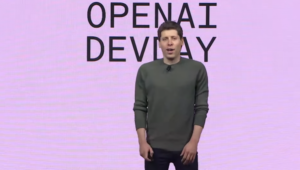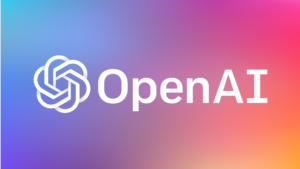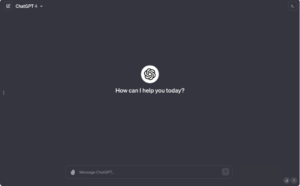
OpenAI Opens the GenAI Spigot Even Wider at DevDay

Sam Altman at OpenAI DevDay on November 6, 2023
OpenAI unveiled a slew of new products and services at its DevDay event yesterday, including a customizable version of GPT called GPTs, an update to GPT-4 called Turbo, a new UI for ChatGPT, a “copyright shield” for customers, and a GPT store, among other announcements.
OpenAI kicked off the generative AI revolution nearly a year ago with the release of ChatGPT, a free chatbot interface for its GPT-3.5 large language model (LLM). Since then, the product has garnered about 100 million active weekly users, making it the fastest growing piece of software ever.
While OpenAI isn’t likely to strike gold again like it did with the release of ChatGPT, the company is by no means resting on its laurels. That much was evident by the trove of announcements coming out of its DevDay event yesterday in San Francisco.
The highlight of the news arguably was the release of GPTs, which the company describes as a custom version of ChatGPT that allows users to create tailored versions of the LLM for specific tasks, such as for teaching kids how to play board games or helping your fellow marketing professionals write marketing copy.
“Creating one is as easy as starting a conversation, giving it instructions and extra knowledge, and picking what it can do, like searching the web, making images or analyzing data,” the company says in its blog unveiling the new service.
Enterprises concerned about sending their proprietary data to OpenAI via an API may be interested in GPTs, which allows them to run their GenAI applications–including the data inputs and outputs–in their own private environments.
“You can now empower users inside your company to design internal-only GPTs without code and securely publish them to your workspace,” OpenAI says. “Like all usage on ChatGPT Enterprise, we do not use your conversations with GPTs to improve our models.”
The company also shared plans for a new GPT store that it plans to open later this month. The store will allow users to sell the tools they create with GPTs. OpenAI CEO Sam Altman says the company will “pay people who build the most useful and the most used GPTs.”
OpenAI also rolled out GPT-4 Turbo, an update that brings 128k context window as well as lower prices. It also has been trained on events happening up to April 2023, a 15-month improvement over the January 2022 cutoff for GPT-3.5 and GPT-4. ChatGPT Plus has also been updated to April 2023; the cutoff for free versions remains January 2022.
DevDay also brought new multi-modal capabilities to the OpenAI platform, including vision in GPT-4 Turbo, image creation via DALL·E 3 in ChatGPT Plus and Enterprise customers, and text-to-speech vi a new API available to developers.
The company unveiled Assistants API, which it dubbed its “first step towards helping developers build agent-like experiences within their own applications.” Similar to GPTs, the Assistants API lets users build AI applications that have specific capabilities, can leverage “extra knowledge,” and can call models and tools to perform tasks, OpenAI says.
Copyright issues have plagued GenAI since the ChatGPT revolution started. But OpenAI says it will protect AI developers with a new “copyright shield,” whereby OpenAI will “step in and defend our customers, and pay the costs incurred, if you face legal claims around copyright infringement.”
The San Francisco company also reiterated that it’s committed to data privacy, and that developers ultimately make the decisions on whether customer data is shared with its various iterations of GPT, including the new GPTs.
“Your chats with GPTs are not shared with builders,” OpenAI says in its blog. “If a GPT uses third party APIs, you choose whether data can be sent to that API. When builders customize their own GPT with actions or knowledge, the builder can choose if user chats with that GPT can be used to improve and train our models.”
Related Items:
What Does ChatGPT for Your Enterprise Really Mean?
OpenAI Launches ChatGPT Enterprise
































